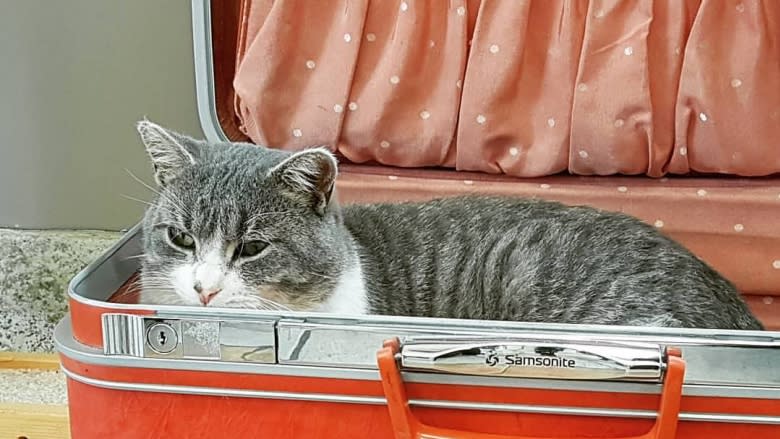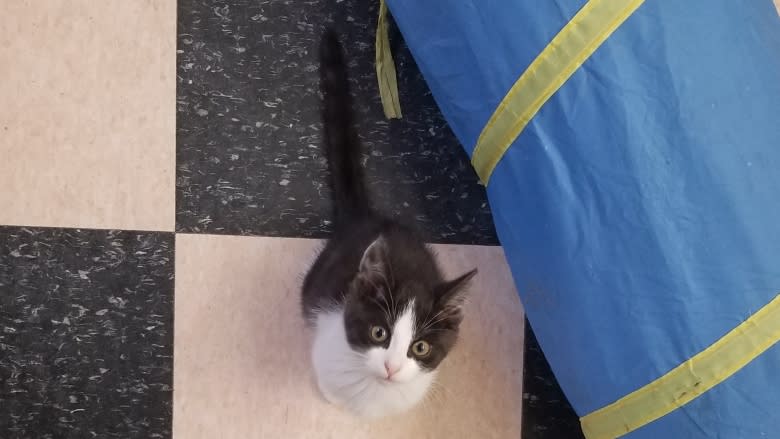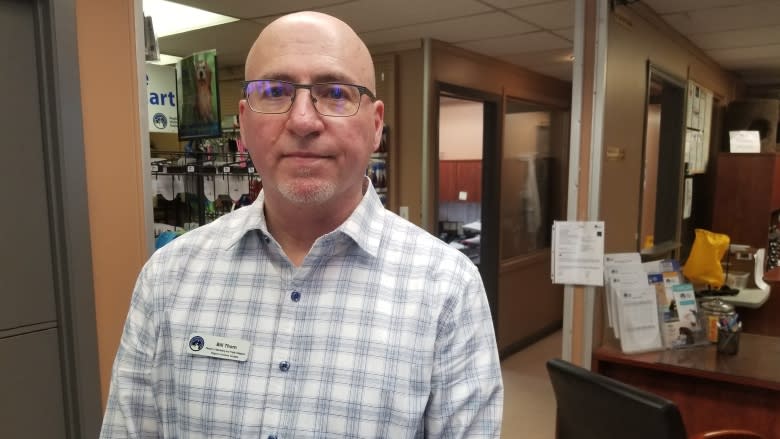Cat Crisis: overpopulation in Regina combined with financial troubles common problem for shelters
One cat foster shelter is closing, the Regina Humane Society lost $70,000 in one year, the Society for the Prevention of Cruelty to Animals loses money with every adoption and donations are down at the Regina Cat Rescue while demand continues to rise.
Vegaboo Cat Haven is closing and leaving the city with one less shelter. It opened in late 2017 and is stopping operations on May 27. The owner Alex Baylak said the costs at the combination shelter and cafe were too high and it wasn't sustainable.
Rent for the large space needed to house the cats was expensive, and there was pushback to the five-dollar admission to the cat room. "Which we weren't really expecting," Baylak said. "We're one of the cheapest cat cafes in Canada."
The closure comes during "kitten season." As the weather warms in the spring, cats start to reproduce and can have several kittens after a short, two month pregnancy.
Baylak said the cat overpopulation issue in Regina is 'brutal'. "There's so many kitties that need homes," Baylak said. "So many people don't fix their animals.
"It's tough for the shelter and for us as well. It's really bad timing for us not to be able to continue at this part because this is when they probably need us the most," she said.
The Vegaboo Cat Haven would house felines until they were adopted, allowing the shelter to take in more cats and prepare new arrivals for their new forever homes.
Overpopulation breeding
Bill Thorn with the Regina Humane Society said they don't know for sure why the overpopulation problem started happening in Regina. "After several years of declining numbers of cats coming into the shelter, back in 2016 we saw an increase of about 500," Thorn said. "And then a similar increase in 2017."
Thorn's main theory is warmer winters have allowed more strays to survive. As well, an early spring and late fall results in a longer breeding season.
"You get a couple more heat cycles in there, which would result in, even if there was one more, maybe 50 per cent or even 100 per cent increase in the number of litters that would have happened that year," he said.
In spring 2018, the Regina Humane Society is starting to see incoming cats—one day it was as high as 23 felines.
"They're very good at reproducing, you know, you get several kittens in a litter. Anywhere from 2-3 to upwards of 8 can happen in a litter. So, there are statistics out there that analyze how much offspring can be seen from just one pair. And in the first year, it's about 12," Thorn said.
Multiple promotions in 2017
The cat numbers in 2017 were a strain on the Regina Humane Society in terms of finances and human resources. Thorn said there are only so many animals they can care for before the numbers are unmanageable. "You get a lot of animals in a small space, in a building for example it's more difficult to control disease...even minor ones can get out of hand very quickly and then the cost of course of adopting them, caring for them and food."
Adoptions were up in 2017 by about 500, although each animal had their shots and were spayed and neutered and the Regina Humane Society had to do a number of adoption promotions to rehome them.
When doing promotions, the cats are rehomed, although the shelter loses hundreds of dollars on each animal. In 2017, the shelter lost $70,000 compared to 2016. "It's something that is not sustainable," Thorn said. "The danger is if that kind of thing keeps happening and we're still trying to maintain the same level of care, sooner or later you run out of money."
In 2018, the shelter is taking measures to prevent this, including not accepting animals from outside the city until there are resources to do so, and asking people to home animals until there's space.
Thorn said often people want to feed strays but without taking the extra step of taking them to be spayed or neutered or rehomed, they're adding to the problem of overpopulating.
"People want to look after the animals that are out there, that's what we're all here to do but we need to have a holistic and wholesome and fulsome handling of that situation so they don't reproduce."
Thorn said the cats will pay the price of overpopulation. "There's too many, there's not enough food, there's a high concentration of animals in you know more numbers in an area than mother nature would ever provide for, and let's face it, I mean, we live in Saskatchewan where typically our winters are very, very cold, very, very harsh and these animals are not built to be outside in that kind of weather."
"The simple fact is that they suffer, many of them will die because there's so many out and about in a small area," he said. "We see injuries, we see disease spreads much more quickly and a lot of these animals die, quite sadly, die a painful death or suffer when it doesn't need to happen because of disease or injury."
Regina Cat Rescue feels financial strain
In 2017, the Regina Cat Rescue's donations were down by almost $30,000 and veterinary costs were up by more than $60/cat. As well, they had maxed their yearly budget and their bank account was at zero in early May.
"[We] have taken in in the first four or five months of the year here, more cats than we normally do because of the extremely cold winter," said adoption coordinator Alanna Whippler.
Whippler thought the donations were down potentially because of the rise in the cost of living, and an economic downturn. She said the high cat population is keeping them busy and they're always at maximum capacity.
"We haven't had to really do a lot of general asks for financial support in the recent years, we've been able to kind of keep up with our demand and pay as we go," she said. "We're at a point where we need to pull back with our rescues in order to make sure we'll be able to continue and not only take good care of our cats but hopefully be able to help more later in the year.
"We do feel that the overpopulation problem in Regina is a community based problem, these cats don't materialize out of nowhere . They're the direct result of people not sterilizing their cats and letting them roam. So we do feel like our asks for help are not matched by the financial support from the community." Whippler said the organization has an overflowing inbox of requests for help but can't afford to help.
A problem not confined to Regina
The Saskatoon Society for the Prevention of Cruelty to Animals rehomes cats and dogs in Saskatoon. It has also experienced a high cat population in recent years.
Jasmine Hanson of the SPCA says that recently, there has been an improvement. "People that own cats in the city are starting to spay and neuter their cats a little bit more than they had in the past, so while that is improving the population overall, we are having less stray cats coming into the shelter," she said.
Hanson said while this does not mean cat populations are under control, they are getting better and the shelter is seeing the amount of strays steadily starting to decline and be manageable.
The SPCA often has around 100 cats in the building and dozens of kittens in foster care. "I would say we're pretty much always at capacity, especially this time of year," Hanson said. "Our capacity to care is pretty much always topped out at the shelter. We have no space."
Hanson expects being at full capacity will continue. She said the shelter has been at full capacity since spring 2017.
The SPCA took a financial loss from promotional adoption events similar to the Regina Humane Society. Even with the regular adult cat adoption fee, the shelter loses money.
Hanson said the improvement is going to be slow, but Saskatoon was on a good track.
"It is a team effort, the community of Saskatoon is definitely starting to realize that this is very important, not just to us but to everyone."
Bill Thorn of the Regina Humane Society said a solution to the overpopulation problem in Regina is for people to spay and neuter their pets and not let their cats roam outside. This lessens the stray cat population and has a positive impact on birds and squirrels as well.
"Everybody needs to do their part," Thorn said. "No rescue or shelter or the humane society can do it themselves. We do need everybody doing their part and understanding that this is a problem.
"Ideally there's none, they all have a home, we're not there yet, but the more we work at it the closer we'll get and the faster we'll get there."




